Cost of living: Eco-friendly options that could save money
- Published
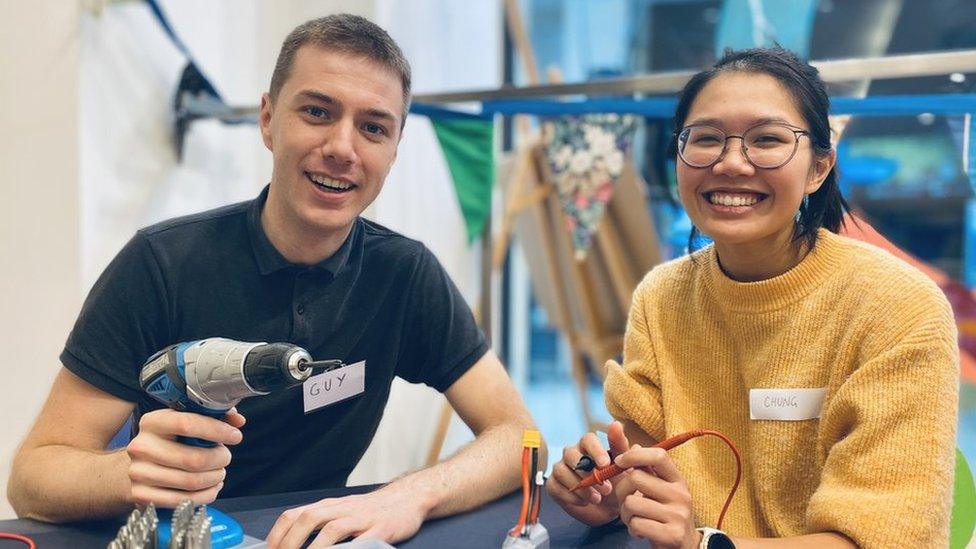
Guy and Chung volunteer at the Repair Café in Cambridge
The cost of living is causing people to buy cheaper, less environmentally friendly goods, according to new data. But there are ways you could save money and help the planet at the same time.
"I recently repaired an electric bike battery for someone, saving them £800," says Guy Jones.
"The part to fix it was £10."
Guy is a volunteer at the Repair Café in Cambridge - part of a network where volunteers repair people's items for free.
Everyday household items like lamps, toasters and laptops are regularly brought in and go back out in full working order.
When speaking to BBC Newsbeat, he points to a clock, worth £40, which isn't switching on.
The owner was close to throwing it away, but it turns out it's only a small problem.
"The connector that you plug in has a loose connection. All we need is to get a £2 replacement and solder it on," Guy says.
Turning back to the story of the bike battery, he adds: "It's a no-brainer when you can do it because the potential for savings is huge."
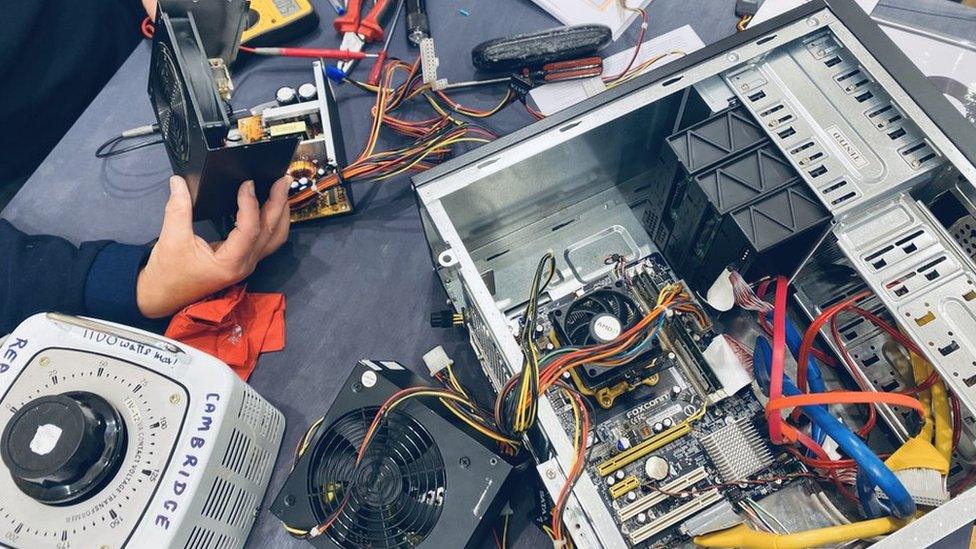
Computers are just one of the items fixed by volunteers at the Repair Café, Cambridge
But as well as saving your wallet, the Repair Café also wants to help save the planet.
"The idea is to reduce the amount of things that go to landfill," Guy says.
"And try to reduce people's carbon footprint by allowing them to repair rather than replace."
The cafés don't just deal with electrical items. Ellie Colling bought a pair of felt shoes for £90 a year ago. Then the buckle snapped, making them unwearable.
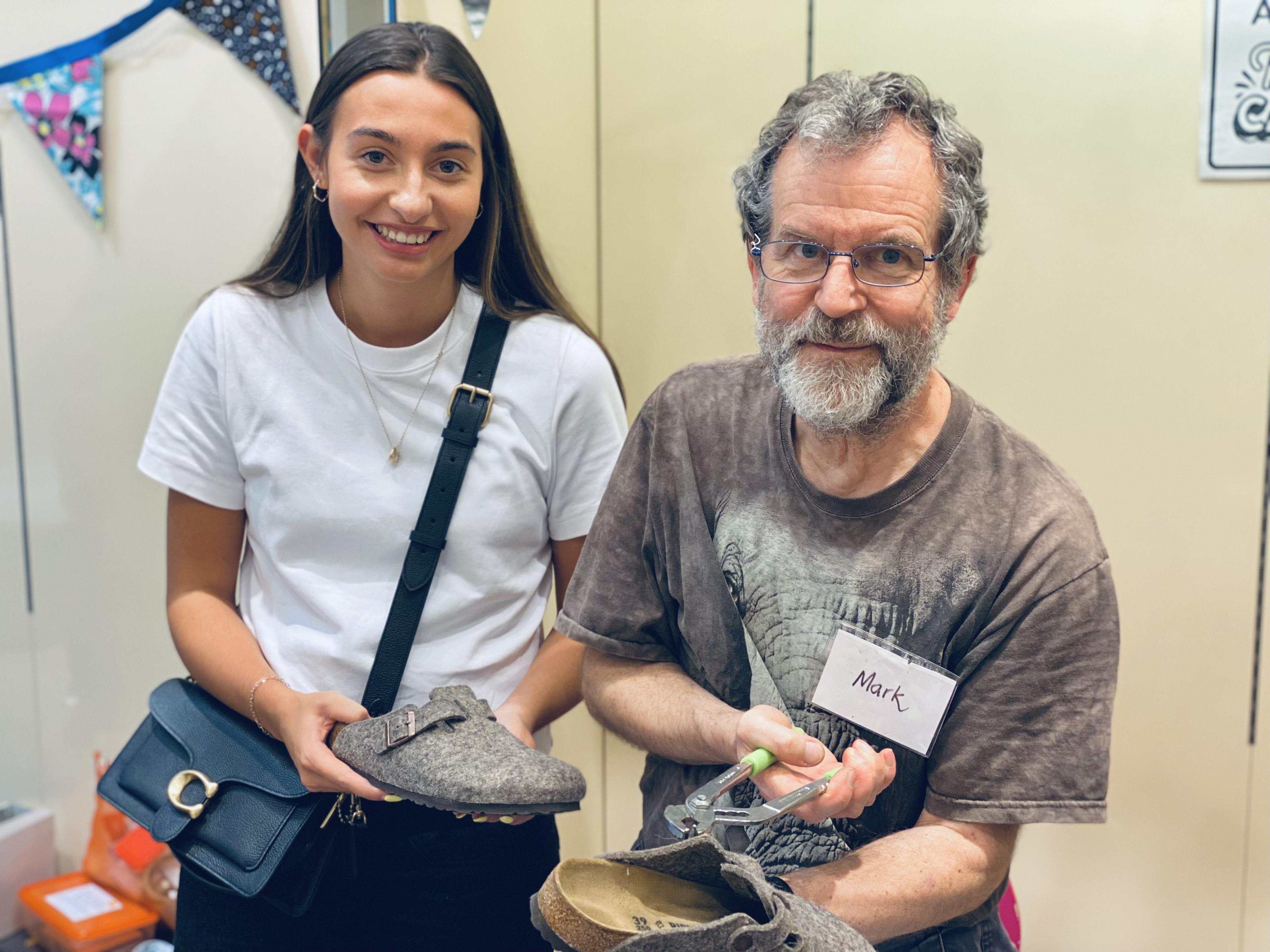
Ellie Colling with her fixed shoes, with Mark, a volunteer at Cambridge Repair Café
"They weren't cheap and I didn't want to throw them away. I love them," says Ellie.
She says the manufacturer offered to send a new pair because they couldn't be fixed in the UK, "so these were just going to go in a bin".
After some delicate metal bending at the café the buckle was fixed and they now "fit perfectly", she says.
Elsewhere, the cost of living is leading people to buy cheaper, less environmentally friendly goods, according to new data.
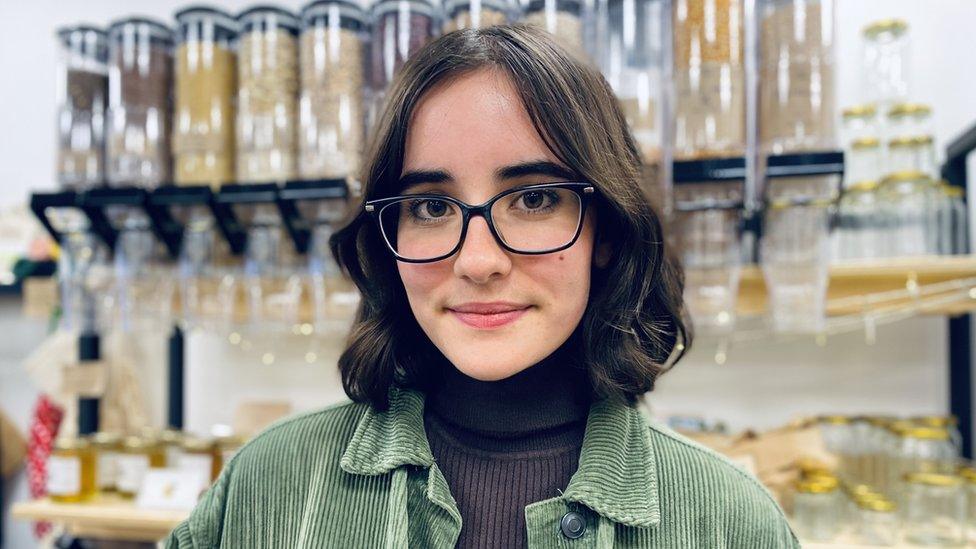
Amy Meek, a climate campaigner and founder of Kids Against Plastic
A survey by Zurich UK has found 70% of people say they can't afford items such as sustainable beauty products.
University student Amy Meek says tries to buy plastic-free and sustainable goods, but rising costs mean she's struggling to do so.
A majority (61%) of the 2,000 people surveyed, aged 18-34, for Zurich UK's Youth Against Carbon campaign say they're more worried about the cost of living crisis than climate change.
The 19-year-old, who studies at Nottingham University, is the co-founder of Kids Against Plastic and says increasing costs have made her think if "we can afford to keep buying [sustainably] or do we need to look at alternatives?"
And she's not the only one.
Research by the Office for National Statistics, external (ONS) suggests that this year there's fewer of us making changes to our lifestyles to help climate change.
In the UK, according to the ONS survey, 75% of adults made changes this year to help the environment, compared with 81% in 2021, with costs being cited as one of the top reasons.
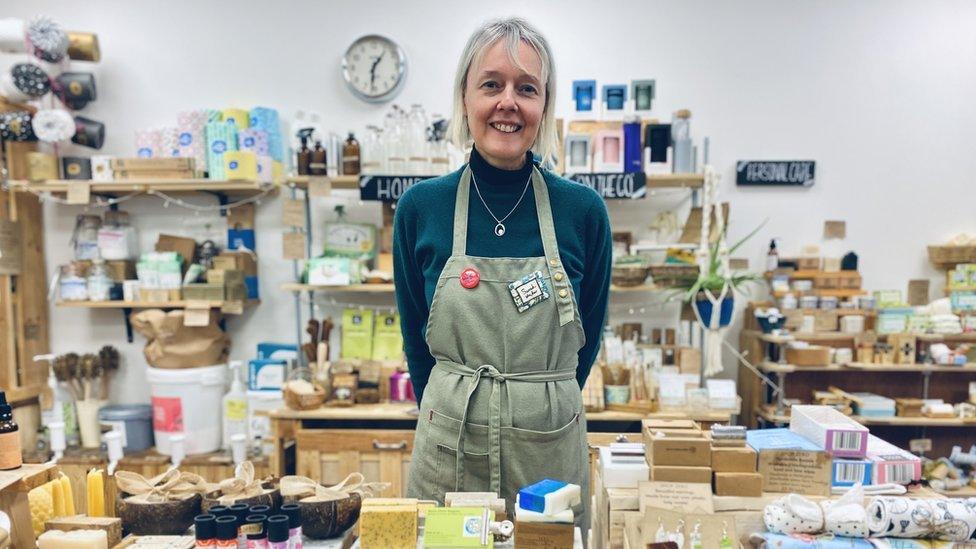
Sarah Molloy, the owner of Shop Zero in Nottingham
Shops which sell environmentally-friendly goods have also noticed fewer customers.
Sarah Molloy runs Shop Zero in Nottingham, which deals in plastic-free products and unpackaged foods.
"The amount people put in their basket has definitely gone down. We've seen our costs go up too, and sadly we sometimes have to pass that on to customers."
Having to choose between saving money and being sustainable is a decision Amy wishes she didn't have to make.
"The top priority for most of us is the cost of living.
"What needs to happen now is we need to see business and government doing something to tackle rising living costs, and that going hand in hand with climate action."
But at the same time, Sarah and Amy think living in an environmentally sustainable way could actually help save money.
"It's about thinking carefully because you're going to come across so many over-priced products when it comes to sustainability.
"All you need is a container - it's that simple," says Amy.
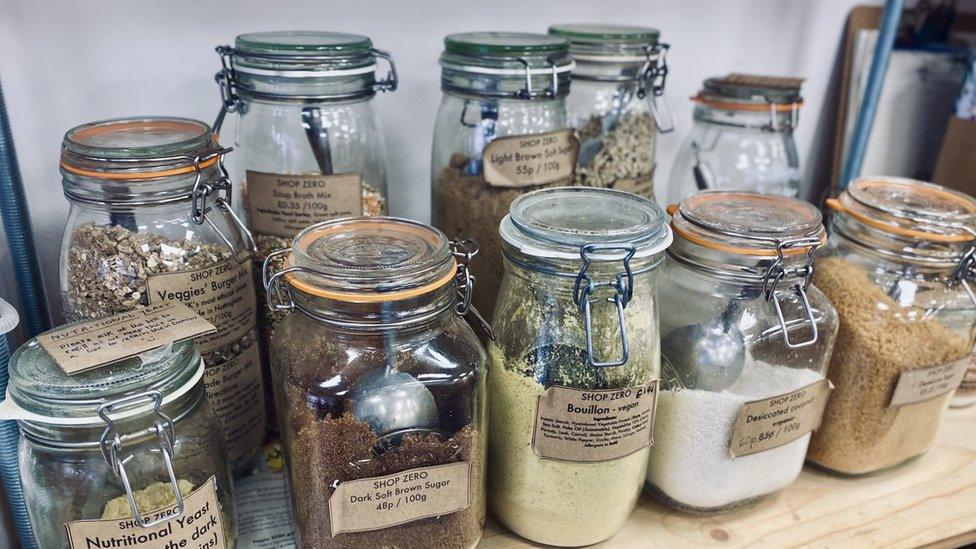
Jars of oats, broth mix and sugar at Shop Zero in Nottingham
Sarah has seen more customers bringing their own containers and filling them with loose foods, because it's cheaper than the supermarket and reduces packaging.
"Loose dry chickpeas is something I've noticed people buying more of. If you soak them in water yourself it's a lot cheaper."

The environmental cost of chucking stuff away
In 2021, 491,212 tonnes of Household Waste electrical and electronic equipment were collected in the UK, according to the UK Environment Agency, external
It takes a lot of energy to make these things, which in turn releases carbon emissions
Each year the average household spends about £1170, external on clothes and shoes and £1768 on household goods and services like furniture and appliances, according to the ONS


Follow Newsbeat on Twitter, external and YouTube, external.
Listen to Newsbeat live at 12:45 and 17:45 weekdays - or listen back here.
- Published21 October 2022
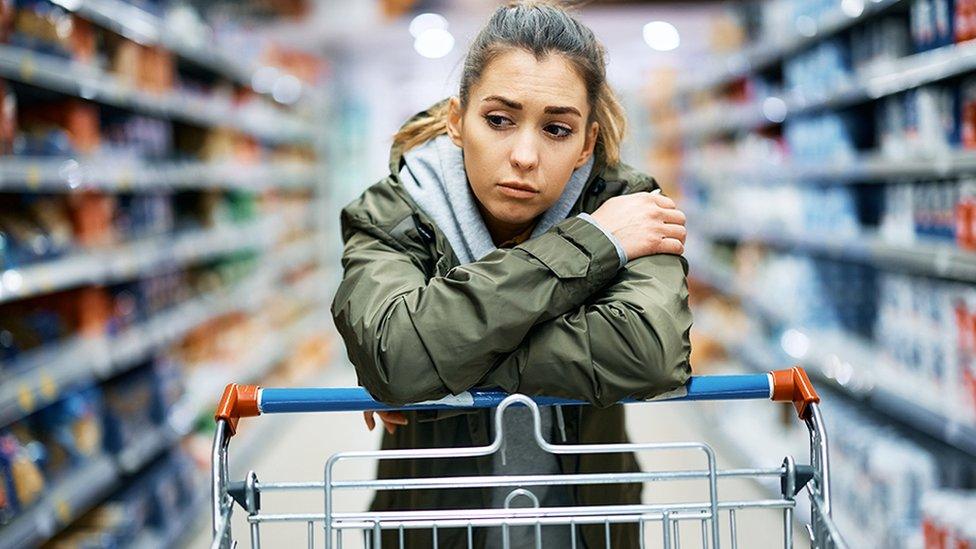
- Published10 November 2022

